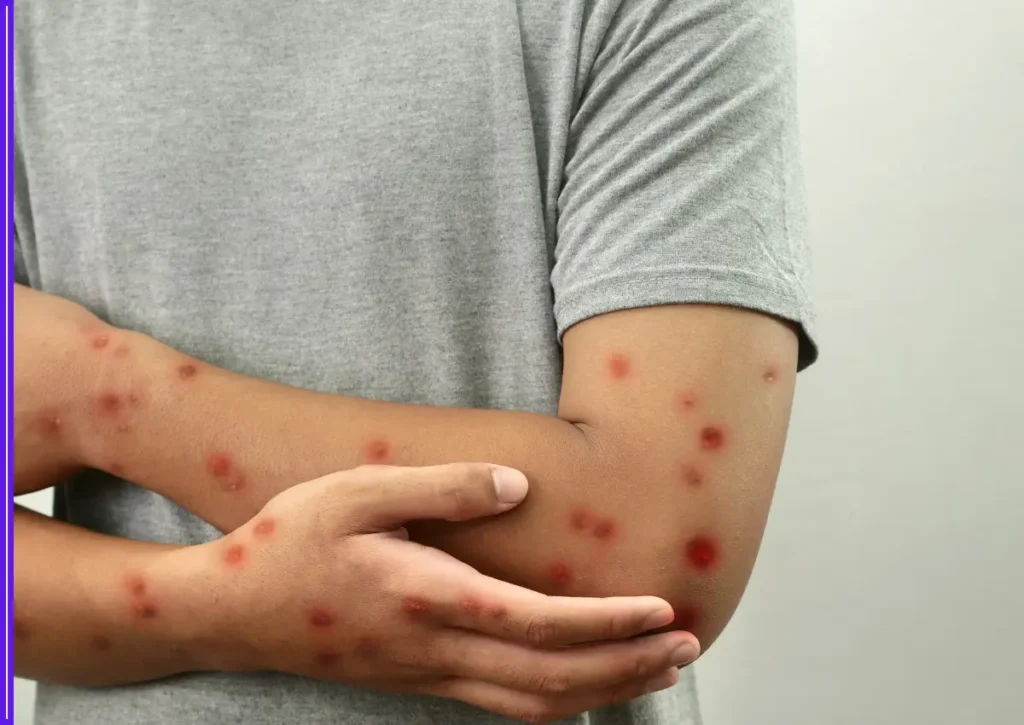Health authorities in the United Kingdom have raised an alert after detecting a growing number of cases of a rare mpox variant, known as clade Ib, spreading across parts of Europe and the United States. The UK Health Security Agency (UKHSA) said it has stepped up surveillance and urged people at risk to get vaccinated, warning that the variant could soon appear in more regions through international travel.

What is clade Ib mpox?
Mpox, formerly known as monkeypox, is a viral disease related to smallpox. It causes fever, rash, swollen lymph nodes and can lead to complications in severe cases. The infection spreads through close physical contact, including skin-to-skin contact, body fluids, or contaminated objects.
There are two major mpox variants, or clades — Clade I and Clade II. Clade I, seen mostly in parts of Central Africa, is considered more virulent. Clade II, which caused the 2022 global outbreak, is usually milder. The subtype Clade Ib, now appearing in Europe and the US, belongs to the Clade I family and has not previously been widely seen outside Africa.
Rising cases in Europe and the US
The UKHSA said at least 16 cases of Clade Ib have been confirmed in England this year. Most of them are linked to travel from Africa, but some appear to have been acquired locally. The agency has increased the importation risk level from medium to high, noting that a handful of new cases have also been detected in countries such as Portugal, Spain, the Netherlands, Italy, and the United States.
While the total numbers remain low, public-health experts say the changing pattern — with cases emerging in individuals who have not travelled recently — suggests the virus may be adapting or spreading through undetected community links.
Why scientists are concerned
According to virologists, Clade Ib is genetically closer to the strain found in the Democratic Republic of Congo, where mpox remains endemic. That variant has historically been associated with more severe illness, including higher hospitalization rates.
Dr Radhika Menon, a senior infectious-disease specialist in Bengaluru, says the development underscores the need for global vigilance. “Mpox may no longer dominate headlines, but it hasn’t gone away. New variants like Clade Ib remind us that viruses continue to evolve, and surveillance cannot afford to relax,” she said.
The World Health Organization (WHO) has not declared a new global emergency but confirmed that multiple European countries have reported small clusters. The agency urged governments to continue testing, contact tracing, and vaccination for high-risk groups.
Connection to the 2022 outbreak
The large mpox outbreak of 2022 was driven mainly by the Clade IIb variant, which spread among men who have sex with men (MSM) in more than 100 countries. That wave was eventually controlled through vaccination campaigns and behaviour-change awareness.
Experts now say the new Clade Ib cases differ slightly in pattern. “It’s too early to say that Clade Ib behaves the same way as the 2022 strain,” noted Dr Menon. “The mutation profile is different, and the severity could vary. However, the mode of transmission — close physical contact — likely remains the same.”
Symptoms and precautions
Typical mpox symptoms include:
- Fever and body aches
- Headache and fatigue
- Swollen lymph nodes
- Skin rash or lesions that may appear on the face, hands, or genitals
The illness usually lasts two to four weeks. Most people recover without treatment, though severe cases can occur in immunocompromised individuals or children.
The UKHSA and CDC in the United States have both reiterated that the general risk to the wider population remains low, but awareness is crucial.
Vaccination drive and preparedness
The vaccine used against mpox, based on the smallpox vaccine platform, continues to offer protection. Studies suggest it provides about 75–80 percent effectiveness against Clade IIb; scientists expect similar cross-protection for Clade Ib, though research is ongoing.
The UK has begun offering booster doses to high-risk groups, particularly men who have multiple sexual partners and healthcare workers in sexual-health clinics. The WHO has advised countries to maintain sufficient vaccine stockpiles and ensure frontline workers are trained to identify mpox rashes early.
India’s National Centre for Disease Control (NCDC) said no cases of Clade Ib have been detected so far. However, health authorities continue to monitor travellers arriving from Europe and Africa and are maintaining laboratory readiness.
What travellers and the public should know
Public-health agencies recommend the following preventive steps:
- Avoid close contact with anyone showing mpox-like rashes or lesions.
- Wash hands frequently and use alcohol-based sanitizers.
- Practice safe sexual behaviour and limit partners if possible.
- Seek medical attention immediately if you notice unexplained skin lesions or flu-like symptoms.
- Get vaccinated if you are part of an eligible group or have been advised by your healthcare provider.
Dr Kiran Batra, an epidemiologist based in Delhi, explains that the key is early diagnosis. “We need to normalize testing again,” she said. “Just like with COVID, identifying and isolating cases early helps contain spread. The virus is manageable if we act quickly.”
Global cooperation and the road ahead
Scientists caution that the world must not repeat the early mistakes made during COVID-19 — underestimating outbreaks until they spread widely. While mpox does not spread as rapidly, its persistence in new regions signals gaps in global surveillance and vaccination coverage.
The WHO is collaborating with African health authorities and global partners to monitor the genetic changes in the Clade I family. Genetic sequencing from the new European cases will help determine whether the virus is adapting to human transmission or spreading through new routes.
For now, the risk to the public remains low, but experts warn that complacency could allow isolated cases to seed wider clusters. “The lesson from every emerging infection is clear,” said Dr Batra. “We must track, test, and inform — not panic, but prepare.”
Bottom line
The UK’s alert over Clade Ib mpox is a reminder that infectious-disease threats are evolving even after global attention fades. Vaccination, awareness, and responsible behaviour remain the strongest tools to prevent spread.
Public-health officials say the current situation is under control, but travellers and at-risk groups should remain cautious. Early detection, transparent reporting, and international coordination will be crucial to preventing another global flare-up.
FAQs (People Also Ask)
Q1. What is Clade Ib mpox?
It’s a rare subtype of the mpox virus belonging to the Clade I family, historically seen in Central Africa and now emerging in Europe and the US.
Q2. Is it more dangerous than previous strains?
Clade Ib may cause more severe illness in some cases, but vaccines and treatments are expected to remain effective.
Q3. Can the mpox vaccine protect against Clade Ib?
Yes, existing smallpox-based vaccines provide good cross-protection, though studies are still underway.
Q4. Should India be concerned?
There are no reported Clade Ib cases in India, but authorities are maintaining surveillance and advising caution for international travellers.










